Dealing with Extortion
Many LGBT people in Indian metros and towns depend on the internet to find support groups, social lists, and partners for dating, relationships or sex. Unfortunately, this has also been accompanied by an increase in extortion of gay and bisexual men who use sites such as PlanetRomeo and Yahoo’s chat rooms [ed. and more recently, apps such as Grindr]. Here in Chennai, as well as in other cities such as Mumbai, Hyderabad, Bangalore and Delhi, there are continually increasing numbers of such instances.
A typical example goes like this: extortionist goes online with an attractive profile, and chats up an unsuspecting gay/ bisexual man. After some initial conversation and flirtation, the extortionist invites the man to his ‘home’ for sex. Upon reaching, and sometimes after engaging in preliminary making-out, the man finds out that the tables have been abruptly turned, and the extortionist makes him hand over money, jewellery, or fetch additional money. Often, a few accomplices of the extortionist enter the scene, use physical and emotional violence on the man, strip him of his valuable possessions. In some instances, they have even taken their victims to the nearest ATM and have made them withdraw all the cash in their accounts and hand over to them. The extortionist uses threats to ‘out’ the often-closeted gay/ bi man to his family, employer and/ or college to get the man to give him money. He might also have come into possession of photographs of the man he is luring, and threatens him with widespread ‘out’-ing on the internet.
It is important to bear in mind that most of these problems will not occur in a world where people do not have to fear social ostracism and persecution for being queer. Therefore, our true work is towards making a world where there is no such fear for the extortionists to feed on. When the Indian State becomes one that honours our right to live our lives as LGBT persons, extends to us all the rights and protections that citizens must be granted, we will be better placed to fight social discrimination. The larger problem is that of securing equal rights and lives free of discrimination, violence and persecution. In the mean time, we work with what tools we rightfully have at our disposal.
The author Aniruddhan Vasudevan has received many notifications from gay and bisexual men using the internet about attempts by others to threat and extort. Based on his experience, either directly handling such cases of threat and extortion, or in being a confidant to people who are the receiving end of such threats, he offers some pointers that may be of help should you find yourself in such a situation:
- When you decide to meet a stranger or someone you have not yet grown comfortable with, try to meet in a public space. Respect your intuition on its suggestions of trust or lack of trust. Even if you are have the slightest doubt or discomfort with the person, please do not take the meeting beyond the public space.
- Please do not panic. If the threat is online, try ignoring it. Sometimes that takes care of things.
- Let your extortionists know that threat and extortion are punishable under Section 384 of the Indian Penal Code. Let them know that you are not afraid to seek legal help or go to the police. While we may, if in the closet, be truly scared of the possible consequences of being ‘out’-ed to our families as gay or bisexual, we do not have to give in to those fears and provide what these culprits want. In any case, our fears are what they feed on.
- If they threaten to expose your profile and/ or photographs from a dating site, remind them that action can be taken against such violation of privacy with intent to cause emotional distress and trauma. Let them know that an entire TV station had to eat mud for violating the privacy of individuals on PlanetRomeo. The impressive verdict given by Justice J S Verma for the National Broadcasting Standards Authority condemned the so-called expose done by TV9, and fined this Hyderabad-based television channel.
- Section 388 of the IPC considers extortion by threatening use of Section 377 upon an individual, and Section 399 the threat of extortion, to be punishable acts. Please be aware of such information.
If you have cause to believe that they could harm you and you see the prudence in giving what they ask for, it is good to prioritize your safety and well-being. However, please remember that you can still take action against your extortionists. If you want to look into what you can do in such situations, please contact groups such as Nirangal (formerly Sangama Chennai), Chennai Dost, SWAM, Sahodaran and Orinam in Chennai. Contact information for these and other groups is at our Groups and Lists page.
| Reading:
Vasudevan, Aniruddhan (2011) Dealing with Extortion. Orinam. Online at https://new2.orinam.net/resources-for/lgbt/legal-resources/dealing-with-extortion Brindaa Lakshmi (2017) ChennaiPride’s Guide to Handle Online Harassment for LGBTIQA. Hidden Pockets. Online at http://www.hidden-pockets.com/chennai-prides-guide-to-handle-online-harassment-for-lgbtqia Varta (2017) Blackmailer Alert. Guide prepared by Varta and Queer Friendly Lawyers Network – West Bengal. Online at http://www.vartagensex.org/details.php?p=586d47b21cdb2 Gupta, Kaushik (2017) Tackling past blackmail during childhood. Online at Varta https://vartagensex.org/2017/03/20/tackling-past-blackmail-during-childhood/ Rajani, Ritesh and Sourav Mandal (2017) Not Legal doesn’t mean Illegal. Orinam. Online at https://new2.orinam.net/not-legal-doesnt-mean-illegal-queer-situation-india/ |
Author: Aniruddhan Vasudevan
(c) Orinam.net. Please read our copyright policy.
